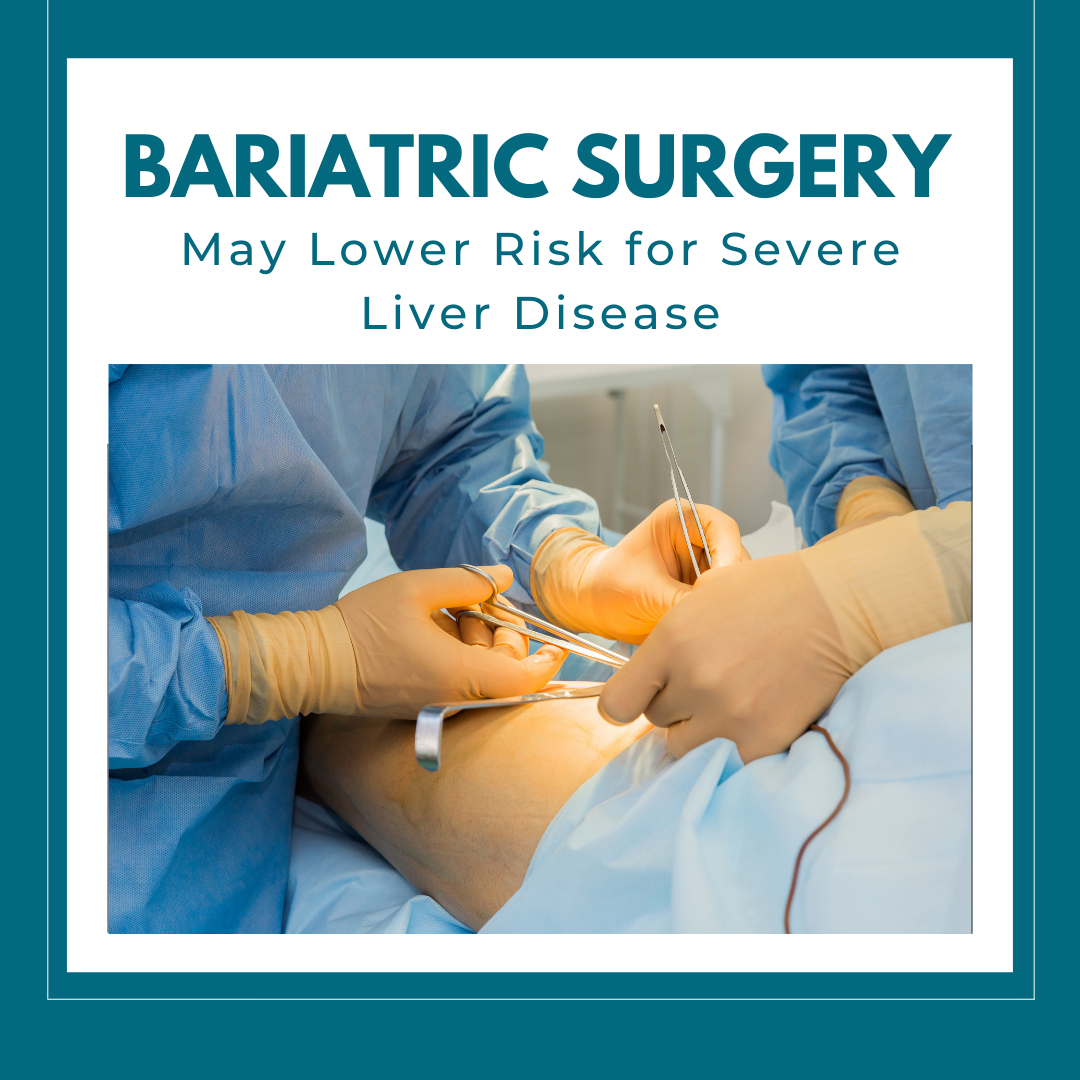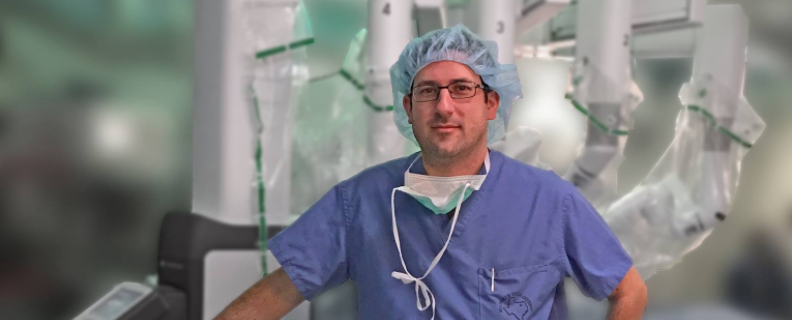

Dr. Michael Sutker, MD
Surgeon
7777 Forest Ln Suite A 331 Dallas TX, 75230
About
Dr. Sutker has been in practice at Medical City Dallas since 2014 and at Medical City McKinney since 2019. He is board-certified in general surgery. Dr. Sutker manages a wide range of surgical diseases. He specializes in treating conditions with minimally invasive techniques utilizing both standard laparoscopy and robotic-assisted laparoscopy. Dr. Sutker has specialty training in the surgical treatment of obesity, acid reflux, esophageal motility disorders, and paraesophageal hernias. He is skilled in the repair of abdominal wall defects, including inguinal, umbilical, ventral, and incisional hernias. Dr. Sutker also enjoys managing emergency surgical situations including gallbladder disease, appendicitis, and diverticulitis.
Dr. Michael Sutker, MD's Videos
Education and Training
MD at the University of Texas Southwestern Medical Center
Board Certification
American Board of Surgery
Provider Details

Dr. Michael Sutker, MD's Expert Contributions
Tips For Weight Loss - By Dr. Michael Sutker
Tip 1 - Do Not Eat After 8 PMMy Recommendation - Many patients consume unnecessary calories late in the day prior to bed. Some patients suffer from Night Eating Disorder. Cutting out these calories can help with weight loss.Tip 2 - Avoid Beverages With CaloriesMy Recommendation - Beverages with...
What Makes Dr. Sutker Stand Out?
Dr. Michael Sutker is the Medical Director of Robotic Surgery and the Chair of the Advanced Clinical Advisory Board at Medical City Dallas Hospital, where he’s been practicing since 2014. There, he is also a member of the General Surgery Performance Improvement and Intensive Care Unit...
Meet Michael Sutker, MD: Dallas's General & Bariatric Surgeon
Dr. Michael Sutker is the Medical Director of Robotic Surgery and the Chair of the Advanced Clinical Advisory Board at Medical City Dallas Hospital, where he’s been practicing since 2014. There, he is also a member of the General Surgery Performance Improvement and Intensive Care Unit...
Minimally Invasive Hernia Repair
Hernias are extremely common, especially in the abdominal area, and could also be present and undetected at birth. They occur when tissue pushes through a muscle’s weak spot.For qualifying patients, minimally invasive hernia repair is a great alternative to more invasive, open hernia repair. The...
Understanding Bariatric Surgery: FAQs
The decision to undergo bariatric surgery is not an easy one.Thinking about undergoing bariatric surgery or know someone who is? Here are some FAQs that might help.When is someone eligible for bariatric surgery?Since there are no two overweight people that are exactly the same, there is no general...
Is bariatric surgery safe?
Weight loss is not easy by any means. Even if you diet and exercise appropriately, your body has built-in mechanisms to deter weight loss. Surgery is a fantastic option for weight loss. The surgeon can be performed very safely with controlled risks and few, if any, side effects. Your surgeon and surgical team will put you through comprehensive medical testing prior to surgery to ensure that you are safe to undergo a major operation. The risk profile for a weight loss operation is very similar to that of a gallbladder removal. Most people think of a cholecystectomy as a relatively routine procedure, and weight loss surgery should be thought of the same way. READ MORE
Is high blood pressure bad for anesthesia?
Your blood pressure will be constantly monitored during surgery by the anesthesiologist. They will give medications through your IV as necessary to maintain it in an appropriate range. If your blood pressure is too high prior to surgery (greater than 180/100), it is possible that your surgery will be cancelled. There are no greater risks of high blood pressure during surgery than there are outside of surgery. READ MORE
Do peptic ulcers require surgery?
With the advent of PPIs (proton-pump inhibitors), also known as acid blocking medications such as Omeprazole (Nexium) or Pantoprazole (Protonix), surgery for peptic ulcer disease is rarely warranted. If you have persistent pain, you need to make sure that you had an upper endoscopy (EGD) to evaluate for ulcers and to obtain a biopsy to rule out a cancer or other pathology. You should also be test for an infection called H. pylori that can cause ulcers. H. pylori treatment includes antibiotics. Surgery for peptic ulcers is typically reserved for perforations, bleeding, or pain that lasts longer than 6 months. READ MORE
How do I know if I need my gallbladder removed?
The best test for gallbladder disease is an ultrasound. This will evaluate for the presence of gallstones. Right upper quadrant pain and gallstones is enough for me to recommend to most patients that a cholecystectomy (removal of the gallbladder) is warranted. An ultrasound may also examine for thickening of the wall of the gallbladder that indicates inflammation. If the ultrasound is normal, the next test to get is a HIDA scan. A HIDA scan tests the function of the gallbladder. Dye will be injected into your veins and will then be taken up inside your gallbladder. The HIDA scan tests for how rapidly the dye empties from the gallbladder. If it empties too slow, this is called biliary dyskinesia, and is a pathologic problem of the gallbladder that warrants surgery. If you have gallbladder disease, whether it is from stones or a functional problem, surgery is the treatment. There is no medicine and no diet changes that will ward off symptoms for the long run. I almost always recommend surgery to patients who are medically fit for surgery. READ MORE
Are colonic polyps surgically removed?
Typically small polyps are removed at the time of colonoscopy. Larger polyps may be biopsied, and surgical removal may depend on the pathology on the biopsy. Some times larger polyps will be monitored over time with serial colonoscopies. READ MORE
How long do surgical stitches take to heal?
I typically quote patients about 2 weeks for about 95% of wound healing. That can vary depending on nutritional levels, medications (especially steroids), and the presence of an infection. READ MORE
Does appendicitis require immediate surgery?
Traditional teaching is that appendicitis is a surgical emergency and patients would typically be taken to the operating room within 4-6 hours for an appendectomy. There is newer research stating that appendicitis may be treated with antibiotics alone, sparing people the risk of surgery. The recurrence rate with this may be up to 30% at 2 years, and even higher thereafter. I personally do not recommend non-operative management for my patients unless they are too sick to tolerate a surgery, but understand the reasoning of surgeons who are attempting a non-surgical option. READ MORE
Can internist perform surgical procedures?
The simple answer is no. Surgeons should be performing surgeries, especially in an emergency situation when the likelihood of a complication is much higher. An internist may be trained to do simple "bedside" procedures such as an incision and drainage, removal of a small skin lesion, or placement of a central venous catheter. Invasive procedures should be done by someone with appropriate training and board certification. Some older internists in rural areas may have received some procedural training. READ MORE
Does hemorrhoids require a surgery?
Depending on whether they are internal or external hemorrhoids, they can sometimes be managed with banding in the office setting without needing to go to the operating room. If he continues to have difficulties after conservative management (medications, dietary changes, etc), surgery will likely be necessary. READ MORE
What is safe to eat after gallbladder surgery?
About 1 in 3 patients will get diarrhea after having the gallbladder removed. This happens most frequently with fatty, greasy, or oily foods. I have also occasionally heard patients state that dairy will cause problems as well. I typically do not give any strict dietary precautions to my patients. If you eat a food and immediately feel bloated, nauseous, or have diarrhea, I would avoid that food for a week or two before trying to re-introduce it into your diet. Studies say that the symptoms (post-gallbladder removal diarrhea) resolve in up to 99% of people within 3 months. I have found it rare that I have to recommend permanent dietary changes or prescribe medications. READ MORE
Will my diabetes cause delay in my healing post a bariatric surgery?
If anything, your surgery should improve your diabetes! That is one of the great benefits of a weight loss operation. Up to 60% of patients who have a gastric bypass and about 50% of patient who have a sleeve gastrectomy will see resolution of their diabetes. Your glucose control will be much better. Your medication requirements may drop by half even before you leave the hospital. READ MORE
Did I cause permanent damage by having sex 3 days after my hernia surgery?
In general, I tell my patients to avoid activities after hernia surgery that cause pain. Given the sensations you are describing, I would strongly recommend calling your surgeon for evaluation to ensure that you did not disrupt your repair. The pain may just be from the procedure, but ultimately, you want to make sure you do not have a recurrence. READ MORE
Are there any risks involved in appendix surgery for a 12 year old?
All surgery has risks including pain, bleeding, wound infections, and scars. Having an appendectomy is a relatively safe and well-tolerated procedure. Most are done laparoscopically and patients, especially those that are young and healthy, recovery well without any significant side effects. Your son will not miss having his appendix. There are no long-term drawbacks from having it removed. READ MORE
I have to undergo an abdominal surgery to remove blockages from my large intestine. What will recovery be like?
For major abdominal surgery, such as a partial colectomy as you are describing, is about 2-4 weeks to recover about 80% and potentially 8-12 weeks to get back to baseline. Pain and wound healing depends on whether your surgery is being done via an open approach with a single large incision or a minimally invasive approach with several small incisions. The hardest part for most patients to recover from is gaining energy and appetite. READ MORE
Should I stop taking my blood thinners before my anal fissure surgery?
The simple answer is yes. The type of blood thinner you are on will mean a different amount of time you need to stop taking it. Either your surgeon, anesthesiologist, or pre-operative nursing team will guide you in managing your blood thinners. READ MORE
Why do I feel so sleepy post my surgery?
Surgery itself, in addition to whatever pathology led to your surgery, is a huge physiologic insult to your body. It takes time to recover. I tell my patients that energy is the hardest thing to recover after surgery. Even a routine operation like removing a gallbladder or appendix may take 4-6 weeks before your energy level returns to normal. People who have never taken naps in their life will find they need to rest in the afternoon to make it through the day. This is fairly typical. READ MORE
How long will my son take to recover from an abdominal surgery?
Recovery varies depending on which factor you are looking at. This is what I quote my patients (at least for someone who is young and healthy). 1 night in the hospital (occasionally home the same day) Walking the day of surgery In and out of bed, in and out of a car, up and down stairs- immediately. 3-10 business days off work. People who work desk jobs can return earlier than those doing manual labor 5-7 days of no driving. He can return to driving when he does not need to take prescription pain medication during the day, and when he feels comfortable turning from side to side. Strenuous activity (sports, weight lifting, sexual activity) about 2 weeks, but ultimately whenever comfortable About 80% recovered at 2 weeks. Full recovery, meaning appetite and energy return to normal and vague aches and pains of surgery go away, may take about 4-6 weeks. READ MORE
My surgery site is really itchy. What should I do?
Itching is typically a sign of wound healing. When an incision is made, nerves in the skin get cut. Itching is the feeling you get when the nerves heal. Redness may be worrisome. Sometimes it is just a reaction to the sutures, staples, or glue that is used to close the incision. Other times, it is a sign of infection. If the area of redness is growing, if your wound starts draining, if your pain gets worse, or if you start to have fevers, you should contact your surgeon immediately for evaluation. READ MORE
How long does my husband need to recover after his appendectomy?
People who do desk jobs and work on a computer all day can do that whenever they feel like it, generally about 3-10 business day. People who are active or do manual labor may need to wait 2-4 weeks. READ MORE
Is it safe to conceive after gastric bypass surgery?
I tell my patients to wait at least 1 year prior to trying to get pregnant. Ensure that your vitamin and nutrient levels are within normal limits prior to getting pregnant. Your surgeon or primary care doctor should check these levels. If those values look good, there should be no risk of having a baby. READ MORE
Expert Publications
Data provided by the National Library of MedicineAreas of expertise and specialization
Faculty Titles & Positions
- Medical Director of Robotic Surgery Medical City Dallas Hospital 2016 - 2016
- Chair of the Advanced Clinical Advisory Board Medical City Dallas Hospital - 2016
- Chief of Surgery Medical City Dallas Hospital 2022 - Present
- Trauma Medical Director Medical City Dallas Hospital 2021 - Present
- Section Chief of General Surgery Medical City Dallas Hospital 2019 - 2021
Awards
- Top10MD 2019 Top10MD
- Top10MD 2018 Top10MD
- Top10MD 2017 Top10MD
Professional Memberships
- Texas Association for Bariatric Surgery
- American Society for Metabolic and Bariatric Surgery
- Society of American Gastrointestinal and Endoscopic Surgeons
- American College of Surgeons
- American Medical Association
- Obesity Medicine Association
Fellowships
- UC-San Francisco
Fellowships
- Minimally Invasive and Bariatric Surgery, University of Texas Southwestern Medical Center
Professional Society Memberships
- Society of American Gastrointestinal and Endoscopic Surgeons, American College of Surgeons, Texas Medical Association, Dallas County Medical Society
What do you attribute your success to?
Good training and availability
Hobbies / Sports
- Spending Time With Family
Dr. Michael Sutker, MD's Practice location
Michael Sutker, M.D., P.A.
7777 Forest Ln Suite A 331 -Dallas, TX 75230Get Direction
Michael Sutker, MD, PA
4510 Medical Center Drive 302 -McKinney, TX 75069Get Direction
Dr. Michael Sutker, MD's reviews
Write ReviewPatient Experience with Dr. Sutker
- Monica
Doctor Sutker was great and explained everything really well.
- Michael
Absolutely great!
- Ernest bore n
Great
- Morgan
I came in through the Er so had no prior experience with the Dr. He has been very attentive, caring and helpful with all of my questions and concerns.
- Casey
Dr. Sutker is so attentive. He provides exceptional support!
Amazing doctor and staff!
- Michael
Excellent bedside manners. Excellent care
- Dorothy
Great Doctor very professional
- Ronda
He saved my life! What's a better review than that.?
- Dorothy
Excellent care. Excellent bedside manners
- Robert
Helpful
- Nighat
He did good Job
- Damon
Excellent doctor . Kind and understanding. Gave great advice to help my problem.
- Robert
He was fantastic.
- Ana
Excellent
- Carol
Dr. Sutker was very knowledgeable, kind, professional and considerate. He made me feel relaxed and that he cared for me and my anxiety and that I was a person not a number.
- Elliot
I found dr sutker to be very professional but still personable. He answered all of my questions truthfully.
Great :)
- Abba
A bit of a wait but worth it. I felt the doctor really listened and addressed my concerns. Also knowledgeble.
- Phyllis
Good care. Talked me and answered all my questions.
+ Show More
Media Releases
Get to know General Surgeon Dr. Michael Jason Sutker, who serves patients in Texas.
Dr. Sutker is a board-certified general surgeon who specializes in treating general surgery conditions with minimally invasive techniques, mostly utilizing robotic-assisted laparoscopy. He opened his practice, Michael Sutker, M.D., P.A., at Medical City Dallas in 2014 where he is the Medical Director of the Robotic Surgery Program & Section Chief for General Surgery.
At the beginning of 2019, he started a second office at Medical City McKinney to bring his skills and expertise to that area. Dr. Sutker is also a part of the Surgical Consultants of Dallas, LLC, and he maintains close ties with associate surgeons, including Dr. Sue Jiang, Dr. Christopher Bell, and Dr. Dina Madni.
A Plano, Texas native who graduated from the University of Texas at Austin, Dr. Sutker earned his medical degree from the University of Texas Southwestern Medical School in Dallas. He then went on to complete his general surgical internship and residency at the same educational venue. He received additional fellowship training in minimal invasive and bariatric surgery at the University of California, San Francisco Medical Center.
Skilled in the repair of abdominal wall defects, the doctor is board-certified in general surgery by the American Board of Surgery, an independent, non-profit organization located in Philadelphia, Pennsylvania, founded for the purpose of certifying surgeons who have met a defined standard of education, training, and knowledge.
In addition, he is board-certified in obesity surgery by the American Board of Obesity Medicine, which is a 501 nonprofit, self-appointed physician-evaluation organization that certifies physicians practicing obesity medicine.
Attributing his success to good training and availability, he has received specialty training in the surgical treatment of obesity, gastro-esophageal reflux disease, esophageal motility disorders, paraesophageal hernias, and inguinal and ventral hernias. He also has an extensive practice in emergency general surgery, managing problems such as appendicitis, cholecystitis, diverticulitis, and small bowel obstructions.
Remaining at the forefront of his challenging specialty via memberships with professional organizations, Dr. Sutker is a member of the American College of Surgeons (Fellow), the Society of American Gastrointestinal and Endoscopic Surgeons, the American Medical Association, the Texas Medical Association, the Texas Association for Bariatric Surgery, the American Society for Metabolic and Bariatric Surgery (Fellow), the Dallas County Medical Society, and the Obesity Medicine Association.
He maintains the highest levels of accreditation and pursues ongoing education to stay abreast of the latest trends in the medical field. He also participates in regular continuing medical education and attends local and national conferences to stay abreast of new research and surgical techniques.
General surgery is a surgical specialty that focuses on abdominal contents including the esophagus, stomach, small bowel, colon, liver, pancreas, gallbladder, appendix and bile ducts, and often the thyroid gland. A general surgeon performs a wide range of abdominal surgeries for many forms of intestinal and abdominal wall neoplasms, gallbladder disease, gastric and pancreatic disease. They follow the patient through critical care and surgical recovery all the way to outpatient care.
Among his numerous accolades, Dr. Sutker is the recipient of Patients’ Choice Award (2015, 2016, 2017, 2018), On-Time Doctor Award (2015, 2016, 2017, 2018), and Compassionate Doctor Recognition (2015, 2017).
Outside of practicing medicine, he enjoys spending time with family.
Recommended Articles
- What Is an Abdominal Hernia?
When a piece of tissue or an organ protrudes from its normal position, the condition is called a hernia. An abdominal hernia occurs when a piece of bowel protrudes through a weak area of the abdominal walls. Muscle and tissue layers form the abdominal walls. Weak spots may arise from these layers,...
- How to Prepare for an Appendectomy
What Really Is Appendicitis?To understand the term appendicitis, you need first to understand what the appendix is. The appendix is a small structure that is finger-shaped and located in the abdomen in connection with the large intestines. More specifically, this structure is found on lower right...
- Reasons Why You Need Bariatric Surgery
What is Bariatric Surgery?Bariatric surgery is also referred as weight loss surgery. It is mainly done on obese people or those with a BMI (body mass index) greater than forty. The main aim of this kind of surgery is to achieve weight loss. What are the Risks of Being Overweight?Being obese poses...
- What to Expect After a Tonsillectomy
A tonsillectomy is mostly carried out as an outpatient operation, where the patient is allowed to go home on the same day after the surgery. However, a one-day hospital stay is recommended if complications occur after the operation and if the patient has a minor or complex medical...
- What Is Lipoma: Causes, Lipoma Removal, and What’s Involved?
What is a lipoma?Lipoma is the most common benign tissue tumor that occurs in almost 1 percent of the population. A lipoma consists of mature fat cells. Typically, a lipoma is enclosed by a thin fibrous capsule. Usually, lipomas develop superficially under the skin, but they can also occur anywhere...
- Inguinal Hernias: Get the Facts
Inguinal Hernias: Get The FactsInguinal hernias are caused in the groin when intestinal tissues squeeze through the inguinal canal that is located at the base of the abdomen. The condition causes a protruding lump that causes pain during movement or when you lift heavy objects. Inguinal hernias are...
Nearest Hospitals
MEDICAL CITY DALLAS HOSPITALl
7777 FOREST LANE DALLAS TX 75230WALNUT HILL MEDICAL CENTERl
7502 GREENVILLE AVENUE DALLAS TX 75231TEXAS HEALTH PRESBYTERIAN HOSPITAL DALLASl
8200 WALNUT HILL LANE DALLAS TX 75231TEXAS HEALTH PRESBYTERIAN HOSPITAL ALLENl
1105 CENTRAL EXPRESSWAY NORTH ALLEN TX 75013METHODIST MCKINNEY HOSPITALl
8000 W ELDORADO PKWY MCKINNEY TX 75070BAYLOR SCOTT AND WHITE MEDICAL CENTER MCKINNEYl
5252 WEST UNIVERSITY DRIVE MC KINNEY TX 75071












